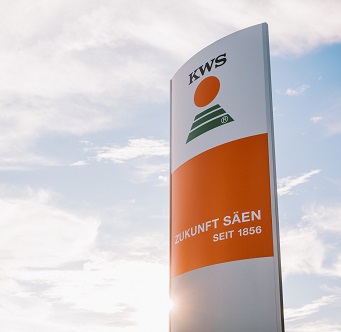“We are pleased about our overall good performance in the first quarter. However, the major part of the fiscal year is still ahead of us. How the spring sowing season goes in our core markets is crucial to KWS’ success in the year as a whole,” said Eva Kienle, Chief Financial Officer of KWS SAAT SE, about the published results. Higher revenues were accompanied by a moderate rise in the cost of sales. Among other things, the fact that the company no longer has to pay license fees for corn technology in Argentina had a positive impact. While selling expenses remained stable year on year, expenditure on research & development rose by around 9%. Administrative expenses declined. As to the other operating expenses, negative exchange rate effects had a far lower impact on net income for the period than in the previous year. Inventory write-downs increased slightly due to the rise in inventories. All in all, EBIT for the first quarter improved by 38.7%. It was €–28.8 million as of September 30, 2016.
Segment reports: Corn and oil seed business help increase net sales
The Corn Segment grew its operational business in the first quarter, increasing its net sales by nearly 42% to €71.4 (50.3) million. The strongest growth in net sales was from corn business in Argentina, despite significant negative exchange rate influences. An increase in local corn cultivation area helped in this regard. Revenue also increased in corn and soybean seed business in Brazil. The segment’s income benefited among other things from lower negative exchange rate effects and the fact that the company no longer has to pay license fees in Argentina. It totaled €–24.5 (–45.2) million. The positive trend in the segment’s income in the first quarter does not allow any conclusions to be drawn about earnings for the entire fiscal year due to the quarter’s slight importance for the year as a whole. The lion’s share of net sales at the segment is generated in the third and fourth quarters (January to June).
Net sales at the Cereals Segment fell by around 11% to €50.0 (56.4) million. Rapeseed business in the first quarter was a little lower year on year; some net sales shifted to the second quarter. Revenue from rye declined slightly and the performance of the British pound also had a negative impact on the segment’s net sales. However, barley business remained stable and revenue from wheat was increased. As a consequence of the decline in net sales, the segment’s EBIT fell to €11.9 (15.7) million.
Net sales in the Sugarbeet Segment remained at the good level of the previous year and totaled €12.8 (12.8) million. Revenues in the first quarter come mainly from the sale of sugarbeet seed in the U.S., Chile and the Middle East. The segment’s income improved largely due to lower negative exchange rate influences and was €–13.1 (–16.4) million.
All cross-segment costs, such as expenditure for all central functions at the KWS Group and long-term research projects, are carried in the Corporate Segment. Its income is therefore always negative. A slight increase in research expenditures and the fact that, unlike in the previous year, there were no positive exchange rate effects resulted in an EBIT of
€–20.2 (–16.8) million.

